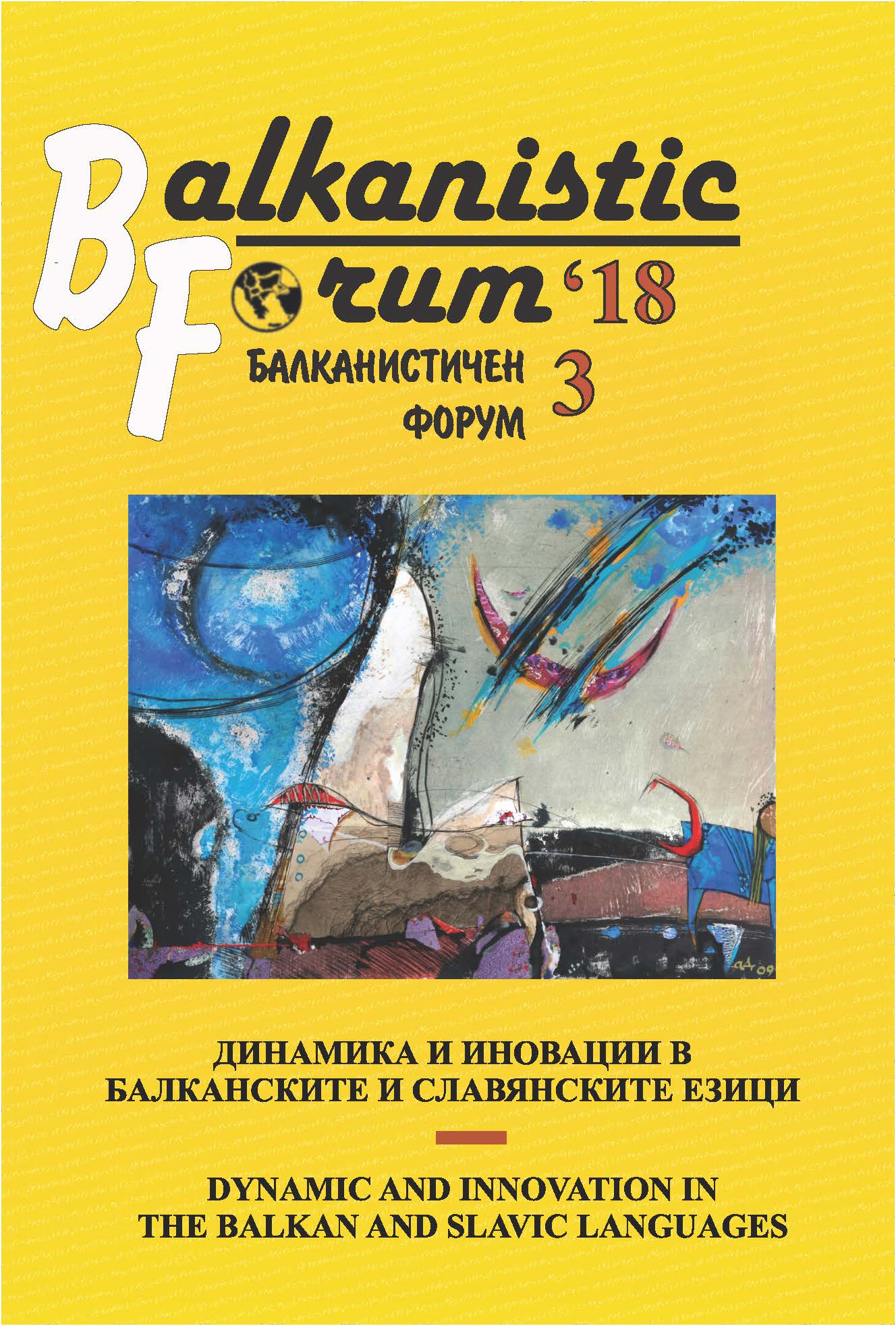Categorial aspectual semantics and distinctions in aspect usage between Russian and Czech:
the concept of LIMIT
Categorial aspectual semantics and distinctions in aspect usage between Russian and Czech:
the concept of LIMIT
Author(s): Elena PetrukhinaSubject(s): Language studies, Language and Literature Studies
Published by: ЮГОЗАПАДЕН УНИВЕРСИТЕТ »НЕОФИТ РИЛСКИ«
Keywords: Russian; Czech; verb aspect; limit; totality; telicity
Summary/Abstract: Analysis of aspect usage distinctions between Russian and Czech is conducted taking into account the peculiarities of the category meaning of perfect and imperfect aspect in each language. For the Russian perfect aspect the idea of a LIMIT as a temporal border of actions (or critical point of the situation) is more significant; as far as the Czech language is concerned - the idea of TOTALITY prevails. The analysis of the LIMIT concept in Russian aspect system and the interpretation of this term in Russian studies are at the center of attention. The concept of LIMIT actualizes representations about the temporal structure of a situation. It is reflected in such aspectual notions as telicity / atelicity (or, in other terminology, terminativity / non-terminativity) of the action and the categorical meaning of the perfective aspect. So the article discusses the problem of distinguishing the grammatical limit and the lexical one. In Russian the concept of LIMIT belongs to semantic dominants of the Russian language picture of the world, that is to say it belongs to the fundamental ideas that are characterized by frequency and variety of expression forms. The idea of temporal limitation plays a leading role in Russian verbal word-formation too.
Journal: Балканистичен Форум
- Issue Year: 2018
- Issue No: 3
- Page Range: 88-100
- Page Count: 13
- Language: English
- Content File-PDF

